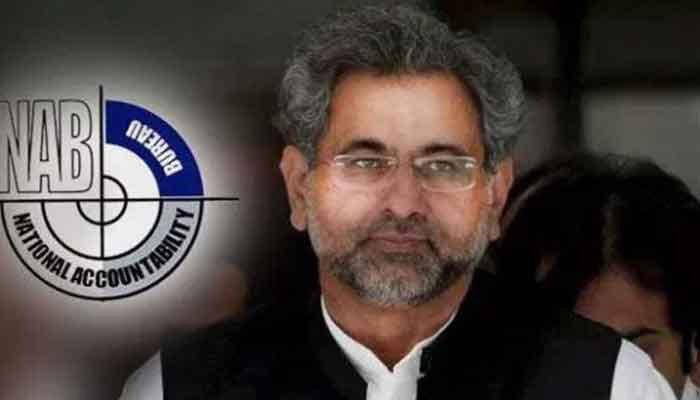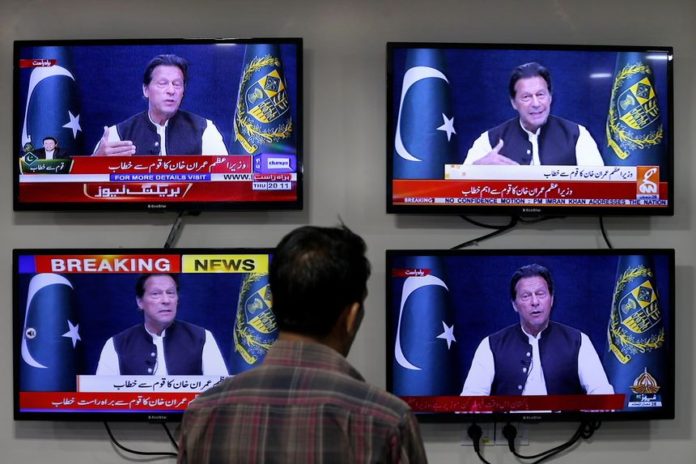Dear Readers,
Following weeks of high political drama and constitutional chaos, former cricket star Imran Khan was ousted as Prime Minister of Pakistan after it ended up in the Supreme Court and the Prime Minister lost his position after losing the no-confidence motion in Parliament. Truth be told, this was in actual fact the combined Opposition’s frantic attempt to try and “escape” accountability considering the many corruption cases still pending against many of them. Imran Khan’s political demise was rooted in twin new realities. Within parliament, his Pakistan Tehreek-e-Insaf (PTI) had lost support of the coalition allies, denying him the majority needed to defeat the vote of no confidence. Outside parliament, he appeared to have lost the support of the powerful military which had recently fallen out publically with the Prime Minister over senior military appointments and policy decisions, his wobbly
relationship with the U.S. and management of the economy. Since his ouster Imran Khan has been defiant, leveraging his underlying popular support to draw large and boisterous crowds in Karachi, Peshawar and Lahore, where at many places the American flag was burnt. All supporters denounced the alleged role of the United States, which Imran Khan said had “sponsored regime change”. The US has strongly denied any role in the affair. Imran Khan has repeatedly indicated he will not give up the fight, his narrative resonating with his supporters thus tapping into a reservoir of anti-Americanism in the country. Addressing a ceremony in Governor House, Lahore on April 05 Prime Minister Imran Khan admitted that the PTI paid a high price for committing mistakes in the past but now it had learned the political ropes and would prioritize its “ideological” workers. Imran Khan once told his cricket team to “fight like cornered tigers” and he looks set to be a formidable character in Opposition. For the benefit of readers my article titled “Defacto Second NRO” is being reproduced below:
The opposition’s desperate agenda to escape the corruption cases they were facing led to the ouster of the PTI govt. They would never have been able to reach their goal of bringing him down without the tacit support of the establishment and “interference”. Whether this outside support was passive or active in giving the PDM this defacto second NRO is a moot point that motivated Imran’s “conspiracy” theory, remembering the Chanakya principle “the enemy of an enemy is a friend”. The coincidence of the date of the meeting and the filing of the “vote of no confidence” contributed to this perception.
The interference was duly taken cognisance of by the National Security Committee and DG ISPR confirmed it. Gen Bajwa’s address to both serving and retired officers over the weekend listed the military hierarchy’s reservations, unfortunately the Army’s “neutrality” gave the people of Pakistan a different perception. However if reported correctly, Gen Bajwa did forthrightly say Imran Khan was popular, would probably be elected and would be “accepted” him as PM.
It is easy to understand why the hereditary dynastical political elite of Pakistan was unable to tolerate Imran’s main goal, to fight corruption and poverty and in that order. Corruption having seeped into all areas of society, Musharraf’s NRO legitimised it. The very “unconstitutional” show initiated by the now ruling politicians of buying the votes of PTI members has been part and parcel of politics in Pakistan for decades. Therefore one earnestly requests that Article 63 A being a travesty that must be removed from the Constitution, the remarks by their Lordships in the SC may be according to the wording of the law but certainly not its spirit or intent. With buyers of votes searching actively and openly for those who are ready to sell their votes, their Lordships must not condone this as the given norm.
Imran Khan has kept repeating he would never give a new NRO, the controversial National Reconciliation Ordinance issued on 5 October 2007 by the former President of Pakistan General Pervez Musharraf who had empowered NAB and FIA to go after corruption. Having lost the sympathies and support of the people and facing a strong popular movement for his ouster, the NRO idea was meant to bring Benazir Bhutto, supported by the US, back from her self-imposed exile to give substance to democracy in Pakistan. For that it granted amnesty to politicians, political workers and bureaucrats who were accused of corruption, many of whom had left the country to not only enjoy their stolen and laundered money, but escape being convicted for murder and a whole litany of other criminal acts. The idea was to reconcile criminals with the laws of the land, according to which they should have been prosecuted, convicted and imprisoned. This first NRO covered Jan 1, 1986 and Oct 12, 1999, the time between two martial laws in Pakistan. Declared unconstitutional by the Supreme Court of Pakistan (SC) on 16 December 2009, the logical consequence should have been that all the cases against perpetrators that had been stopped under the NRO would be re-instated and prosecution restarted. This was never done. One can imagine what devastating impact this had on the nation, the message to all crooks was unambiguous, to please continue stealing and embezzling, when the time comes we can conveniently mandate another NRO!

An honest anti-corruption policy cannot be reconciled with our old political elite. That would have cost them their political careers as well as their lifestyles. Hardly had the civilian coup engineered by the opposition succeeded than the new cabinet members attacked the NAB even before they were sworn in as ministers and why not, most of them were on bail in more than one case. For me personally the most disappointment thing was that Shahid Khaqan Abbasi, someone whom I hold in great esteem, giving a clarion call for the dissolution of NAB “for looting money and torturing people for years”. Will that be the priority of the new govt? Sadly, for their survival it will be!
Imran Khan was ousted by “constitutional means” a no-confidence vote but barely. It was clearly a “civilian coup”, a means of correcting the political balance when it has to be changed within the tenure of an elected govt. Many countries have such a clause. But the problem in Pakistan is that democracy does not have a real meaning here, because it needs democratically-minded people. People who are honest and play by the rules, who do not bribe others and who are committed to party discipline when floor crossing is prohibited. But as a matter of fact, Pakistan inherited its parliamentary democracy from its colonial rulers without having developed the democratic mindset and ethics necessary for it. The political elite that consists in Pakistan of feudal landowners, tribal chieftains, pirs and today of some who have added industries and business operations to their feudal landholding, have figured out how to utilize the democratic playbook to their advantages when they come to power, stay in power or make money.
In addition, the constitution and other laws of the land have been tailored in a way that they promote such behaviour. For instance election campaigns have to be financed from private pockets which induces money-making among politicians and parliamentarians. They have to regain the money they spent during the last election campaign and make some more because the next campaign will come soon and then expect that someone who sponsor him (or her) in the election campaign will be back when elected to collect favours. Chairman Election Commissioner needs to resign for having categorically stated in the SC he could not hold elections in 3 months, what is his reason for continuing if he cannot do his job? Without EVMs the votes cast for PTI could well not be counted as is the usual norm.
Though certainly not exclusively a Pakistani feature, it has been perfected in our country. In order to change the system. One only needs institutions to have minimum capability of interfering into the political process, the new normal is that “national security” thus has its own ramifications. Having repeatedly said he wants good relations with all nations, it is time for Imran to tone down the rhetoric and rebuild bridges, albeit with our self-respect as a nation intact. More importantly Imran Khan was emphatic about the Army’s importance to the existence of Pakistan. As the symbol of the unity of command the army Chief must not be attacked in the way he has been. Whatever one’s reservations, this is not correct. The tremendous response Imran Khan has been getting must not detract him from the lessons learnt. The NRO was the blackest law in our history, Imran remains our only hope we do not have a defacto second NRO.
“The opinions/views expressed in Defence Journal are entirely those of the writers and cannot be construed to reflect the official views of Defence Journal”.




